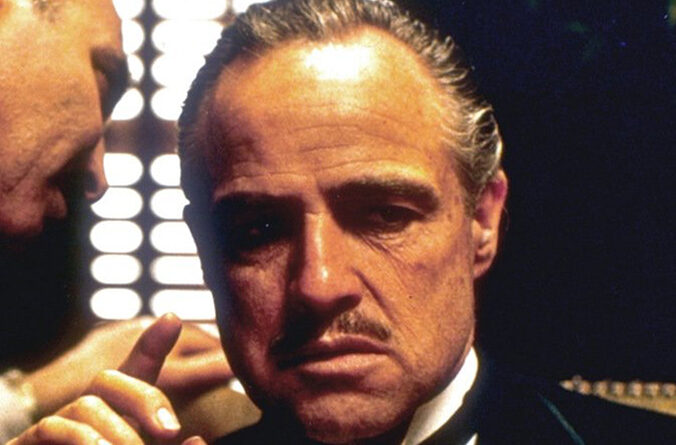Classic Hollywood: Omaha Idols

When I was a kid, I assumed most great actors came from New York, as if proximity to Broadway bestowed talent by osmosis (see: Bogie, Cagney, DeNiro, Pacino). But I soon learned that legends could come from places like Milwaukee (Spencer Tracy), or sleepy towns in Ohio (Clark Gable), Pennsylvania (James Stewart) and Montana (Gary Cooper). In fact, two of the 20th century’s biggest names grew up far from Times Square…in Omaha, Nebraska.
Henry Fonda and Marlon Brando were born a generation apart (in 1905 and 1924), but they were linked by acclaimed careers on stage and screen. While their acting styles differed greatly – Fonda exuded a cool, quiet intensity; Brando was like a hand grenade whose pin was pulled and ticking – the men shared more in common than just a birthplace.
Both were sons of distant fathers who didn’t think their boys would ever amount to much. Both knocked around before finding their true callings: Fonda dropped out of college and worked as a journalist, phys ed teacher, mechanic and window dresser; the moody, rebellious Brando got the boot from military school for misbehaving (shocking, right?). Both were politically active, and as adults, both lost loved ones to suicide (Fonda’s wife Frances in 1950, Brando’s daughter Cheyenne in 1995).
Fonda and Brando’s lives first intersected in 1925 when Brando’s mother Dorothy (nicknamed “Dodie”) saw something in Fonda while working at the Omaha Community Playhouse. Dodie became Fonda’s mentor and acting coach. She stoked his dreams, unlike his ice-cold Dad, who stopped talking to Fonda for a month after he won his first part. Years later, Fonda downplayed his fame, remarking, “I am not a very interesting person. I haven’t ever done anything except be other people.”
After each Nebraskan outgrew Omaha’s theater scene, they headed East. A few lucky breaks on Broadway led to Fonda’s film debut in The Farmer Takes a Wife (1935). From there, his career took off in classics like Jezebel, Young Mr. Lincoln, The Grapes of Wrath, The Lady Eve, The Ox-Bow Incident, My Darling Clementine, Mister Roberts and 12 Angry Men. (Fun fact: In the late ‘30s, young Brando and Dodie visited Fonda on one of his movie sets.)
In 1944, the 20-year-old Brando was cast in the Broadway hit, I Remember Mama. Three years later, he shot to stardom in A Streetcar Named Desire, then reprised his role for the screen version, scoring the first of eight Oscar nods (and two wins). Brando’s other memorable dramas include The Men, The Wild One, Viva Zapata!, Julius Caesar, On the Waterfront, Guys and Dolls, Mutiny on the Bounty, The Godfather, Last Tango in Paris and Apocalypse Now.
Brando’s impact on Hollywood was undeniable, with The New York Times declaring, “In film acting, there is before Brando, and there is after Brando. And they are like different worlds.” Brando dissed his chosen profession, saying, “If a studio offered to pay me as much to sweep the floor as it did to act, I’d sweep the floor…The only reason I’m here is that I don’t yet have the moral courage to turn down the money.”
As for Fonda, he died on August 12, 1982, six months after finally winning a Best Actor Oscar for On Golden Pond. Brando lived to age 80, dying of pulmonary fibrosis on July 1, 2004.
Classic Hollywood posts appear bimonthly on The Music Hall blog.
